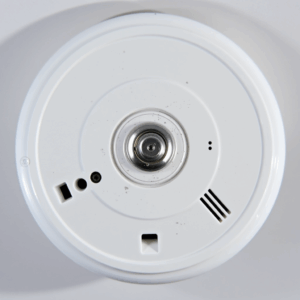For the most part, security becomes a point of debate whenever the buying or selling of a house takes place. One of the key aspects of safety is ensuring that there are adequate smoke detection systems. This is especially important in South Carolina, where smoke detectors are required in residential dwellings with how many units? State housing codes are concerned with safety for a number of good reasons. These laws are important for potential buyers and sellers to know. The more so since smoke detectors are even more relevant if fire-damaged homes are on sale.
Smoke Detectors and Housing Safety Requirements in South Carolina
To address the question, in South Carolina, smoke detectors are required in residential dwellings with how many units? State regulations specify that all residential units require smoke detectors, regardless of the number of units or occupants. These provisions are spelled out in the Code of South Carolina Residential Building regarding Requirements for Smoke Detectors. This requirement states that every sleeping area and level within a residential dwelling must have smoke detectors installed. The underlying principle here is simple, The more detectors there are, the earlier the warning will be given, with the attendant greater opportunity to avert the loss of life and property.
In older homes, they accept battery-operated smoke detectors as well. But all newly constructed or majorly renovated homes need hardwired smoke detectors interconnected throughout the property. Sellers listing a fire-damaged house must ensure all smoke detectors comply with local codes, as this can impact the property’s value and marketability.

Fire-Damaged Homes and Legal Requirements
Selling a fire-damaged home comes with unique complications, but adhering to South Carolina’s safety codes can turn the situation around. Before listing, sellers must take into consideration the relevant safety measures-at least smoke detectors-must be code-compliant. Post-fire inspections usually uncover overlooked details that sometimes include lapsed or missing alarms.
Smoke detectors are more than things that make a home ready for sale; they are solid evidence of a seller’s commitment to safety, which gets perceived as an important feature in any property by buyers, especially when under repair. Installing or replacing smoke alarms is a low-cost investment that provides significant value.
How Sellers Can Ensure Compliance
The smoke detector requirements of South Carolina could appear clear-cut, but ignoring the finer details may result in costly delays. Below is a checklist for sellers ensuring compliance prior to listing a property:
- Test All Alarms
Replace low batteries and test all smoke detectors for functionality. Faulty alarms can be a deterrent to potential buyers. - Add Detectors Where Needed
Smoke alarms must be installed in accordance with the codes of South Carolina as follows: in each sleeping room, in the hallways outside the sleeping area, and on every level of the house. - Check Fire-Damaged Areas
Following fire losses, the warning and detection systems in the fire-affected areas should be replaced for functionality or repair. - Provide Documentation
During inspections, having documentation of updated smoke detector systems shows transparency and builds trust with potential buyers. - Upgrade Outdated Alarms
In older homes, another upgrade entails removing the battery-operated smoke alarms and replacing them with hardwired, interconnectable ones. Buyers see this measure as an advanced idea regarding safety.
By following these steps, homeowners align with the state’s housing code and increase their chances of securing a fair market value, especially for fire-damaged home sales. Addressing the crucial keyword topic, in South Carolina, smoke detectors are required in residential dwellings with how many units? Whether it’s a single-family home or a multi-unit property, these devices are a legal must-have.
Smoke Detectors: Your Ultimate Wingman in Fire Safety
Following a greater focus on fire safety, smoke detectors now take an appropriate place not merely as accessories but as an integral part. Add to that a growing interest in fire-damaged homes for sale, and you have a budding storyline: when it’s all said and done, compliance equals trustworthiness. Buyers want to feel confident in their safety, and meeting these expectations helps sellers build trust.
Considering the human and financial costs associated with residential fires, smoke detectors provide reassurance for all parties involved. By addressing codes, such as ensuring that in South Carolina, smoke detectors are required in residential dwellings with how many units? Sellers signal readiness and responsibility, which buyers undoubtedly notice.
Previous